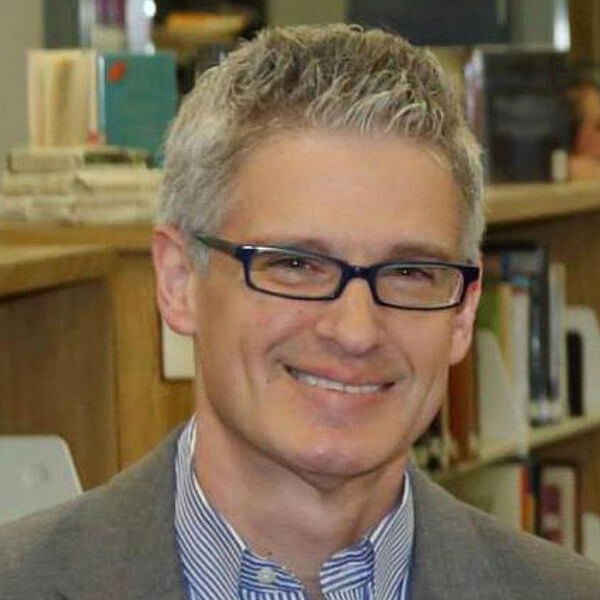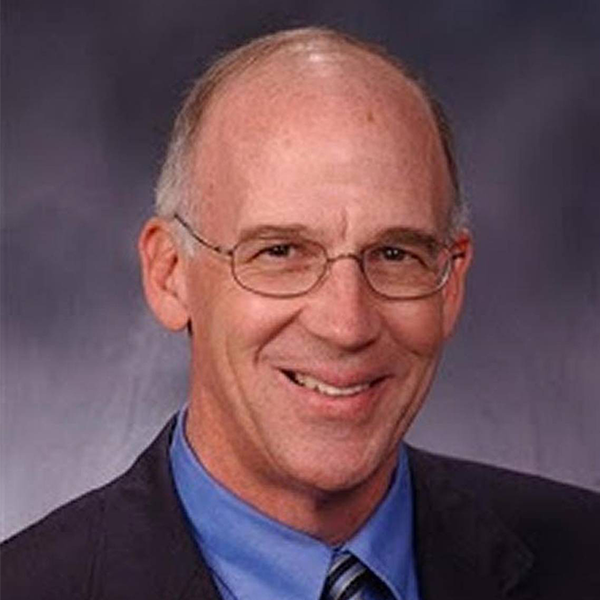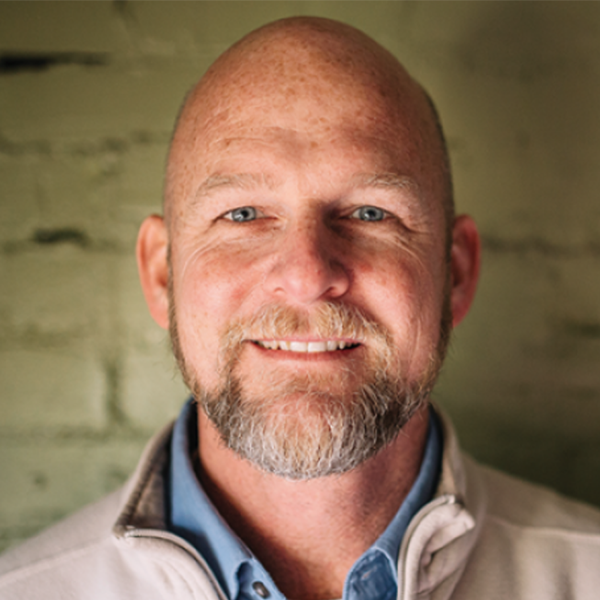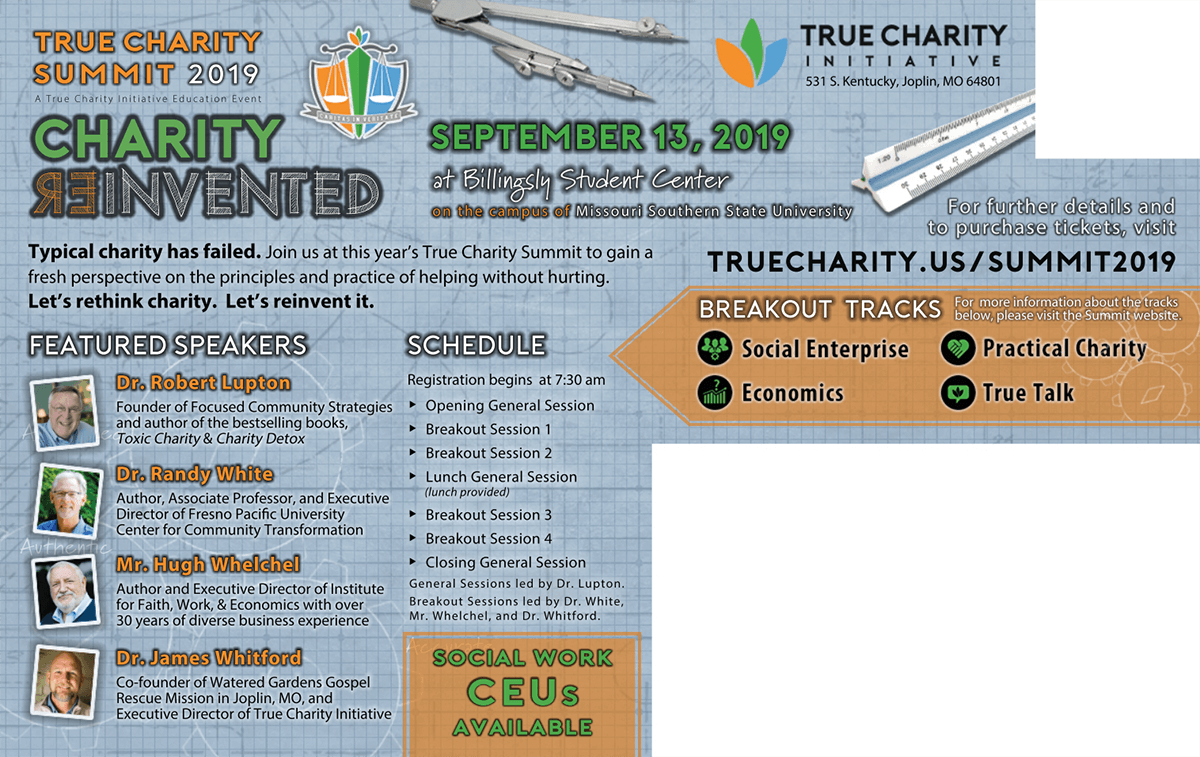This article was originally published in Watered Gardens Ministries’ Rain Newsletter in Spring 2019.
As a student moves into the latter phases of the Forge program, a men’s recovery program operated by Watered Gardens Ministries in Joplin, Missouri, he is assigned a mentor – a Christian leader from the community who agrees to meet with him once a week until graduation.
It’s a relationship designed to last for about 6 months, and Forge Director Jamie Myers believes it’s a crucial component to student success.
“The opportunity for these students to have the input, influence, and wisdom of a godly Christian man who is willing to invest in their life is a rare and generous gift,” she said.
When Arlan Campbell agreed to become a Forge mentor, he got a lot more than he bargained for. And he couldn’t be happier about that. Arlan was paired up with Rick, and even though Rick graduated last fall, the two still get together every week. Arlan doesn’t see that ending anytime soon.
“Monday evenings with Rick are a highlight of my week,” Arlan said. “I’ve seen him grow, and then graduate, and now I continue walking with him in these ‘post-Forge’ phases of his life.”
Rick said, “[The Forge program] can teach us a lot about Bible study and Bible ethics, integrity, and how to be a good man but, with somebody like Arlan as a mentor, it gives you an example, in practice, of what that looks like.”
Arlan has tried to focus on a long-range vision both for Rick and for their mentor relationship, and he believes that vision has given their meetings together great meaning.
“I think a good mentor has to have a vision for the student’s potential that far exceeds what the student can see in himself at that moment,” Arlan said.
Sometimes for Arlan that’s meant holding Rick accountable in difficult times at work, or offering a listening ear and an encouraging word as Rick transitioned out of Forge upon graduation. And now it includes helping Rick see the ways he can begin to invest in other Forge students now that he serves as the live-in assistant for the Forge residence.
“I knew I was agreeing to enter into a relationship where I would provide encouragement, counsel, and accountability,” Arlan said, “but I didn’t know I’d also receive so much of that as well. Rick has such a heart for other people, and I’m glad to call him my friend.”
Interested in starting a mentoring program in your organization? True Charity Network members have exclusive access to the Mentoring Program Model Action Plan (MAP), which provides a detailed how-to guide on planning and implementing effective and life-changing mentoring.
- Members: Access the Mentoring MAP in the Network portal.
- Non-Members: Learn more about Model Action Plans here.
You don’t need to be an organization, though, to start mentoring! If you’re an individual wanting to begin a mentoring relationship but don’t know where to start, check out Life Deck, a faith-based mentorship tool that provides a framework that will walk you and a friend through a joint exploration of 20 life-categories over a period of forty weeks.

Travis Hurley
Director of Advancement
“Will work for food.” That’s a common cardboard sign you’ll see from someone in need. And the response at Watered Gardens is, “You’ve got a deal.”
If someone wants to work for their food, they can earn what they need: work for an hour in the Watered Gardens Worth Shop and get a week’s worth of food.
Instead of a handout, this exchange preserves dignity and awakens worth in people, while also making a small break in the cycle of dependency that traps so many. It’s really a beautiful thing. And it happens more than 300 times every month.
But for those holding the keys to the majority of food donation storehouses, this exchange is problematic. In order to access food donations made to the large food bank in Southwest Missouri, Watered Gardens has been told to first remove any exchange aspect and simply give the food away.
Even if someone wants to work for it.
If the food banks only distributed federal food subsidies, this wouldn’t be an issue. Watered Gardens wouldn’t accept those anyway because a core principle for the mission is the belief that authentic charity is private and voluntary. Thus, the mission is 100 percent privately funded and resourced.
But the food bank doesn’t just distribute federally subsidized food. It also gets donations from private grocers such as Walmart. Watered Gardens would love to access those food donations, and local Joplin stores have even expressed an openness to partner, but a corporationwide contract with Feeding America prevents this.
Feeding America is a national network of food banks that includes the food bank in our region. Its compliance department’s effort to honor federal tax credit guidelines results in strict “no strings attached to food” language in its agreements with local charities.
The end result is that a mission such as Watered Gardens is faced with a choice. Agree to give the food away and have access to large stores of donated food or keep the work exchange in place and find the private food donations in other ways. Because of the mission’s philosophy and principles, it’s an easy choice to make. We’ll find private food donations in other ways.
That’s why in the month of May Watered Gardens is doing a “Feed the Need” food drive. With drop off locations at Food 4 Less, Christ’s Church of Oronogo, the 105.3 New Life radio station, and of course at the Watered Gardens Outreach Center located at 531 S. Kentucky, folks can donate food such as peanut butter, canned fruit, canned meats, pastas, etc.
The mission’s pantry is low. And so many people struggling with poverty and homelessness are willing to work for food. We need help from the community to ensure that the food they earn matches and even exceeds the quality of what they could get from a handout.[/et_pb_text][et_pb_text _builder_version=”4.5.6″ _module_preset=”default” hover_enabled=”0″]
Travis Hurley is Director of Advancement for True Charity Initiative.
This article was originally published in the Joplin Globe on May 14th, 2018.
By Travis Hurley, published in the Joplin Globe on April 15th, 2018
“Anything will help.” That’s what the sign read as someone was panhandling in the parking lot of a popular local grocery store.
“Anything will help.” That’s an effective way of letting people know that no matter how little money they have on them, whatever they give can make a difference. Because, and let’s be real here, the “anything” being asked of you is a couple of bucks from your wallet or some of your loose change.
“Anything will help.” That’s also an effective way of letting people know that if they choose to do nothing, there may be something wrong within their hearts. Who doesn’t want to help, after all? Surely if “anything will help,” a person of compassion will give something. Right?
Right. And that’s why the sign works. It’s why people panhandling stay on the streets. If we weren’t giving of our resources, these folks wouldn’t be frequenting our street corners. But there they are. And in recent sessions, our city council has been discussing how best to address the situation.
To be clear, I don’t have a problem with a person standing on the corner with a sign asking for money. This is a free country, after all. I also don’t have a problem with people of compassion wanting to do something — anything — to help their fellow man. But I do have a problem with the premise.
Will “anything” actually help?
What if the statement on the cardboard sign isn’t true? What if giving money doesn’t actually help at all? Or worse yet, what if giving that loose change actually hurts the person you are trying to help?
In Robert Lupton’s “Toxic Charity,” he identifies a cycle of dependency that proved true over years of inner city development in Atlanta: Give to a person one time and you’ll elicit appreciation. Give a second time and you’ll elicit anticipation. A third time? Expectation. Give a fourth time and you’ll see entitlement set in. By the fifth time you give, a person becomes dependent on you for their basic needs.
Does the creation of dependency sound like help to you? And if people who keep receiving are becoming dependent, aren’t we who keep giving becoming paternal? That doesn’t sound helpful either.
At Watered Gardens, we don’t believe just “anything” will help. We believe there are some very specific “somethings” that actually will. That’s why we focus on building relationships, establishing goals with accountability, and encouraging some kind of exchange. This breaks the cycle of dependency and actually restores people to a place of dignity, responsibility and productivity. That is helpful.
It takes a lot more time, effort and collaboration from our community than a couple of bucks passed through our car windows. But if we really want to help, we should consider giving our money to local missions that are in it for the long haul, then volunteer our time there, too, as we are able. And if we see someone panhandling looking for change, maybe we send them to the mission that offers the real change they need.
[et_pb_section fb_built=”1″ _builder_version=”3.0.47″][et_pb_row _builder_version=”3.0.47″ background_size=”initial” background_position=”top_left” background_repeat=”repeat”][et_pb_column type=”2_3″ _builder_version=”3.0.47″ parallax=”off” parallax_method=”on”][et_pb_text _builder_version=”3.0.72″]
The 7 Marks of Effective Charity
Mark #7 God: Why Faith Makes a Difference
Thursday, May 10th
12:00pm – 1:30pm
Lunch is provided
(This course is state certified as a 1 hour continuing education credit for Missouri social workers)
Please RSVP – $5 Donation is Recommended
Location: Watered Gardens in the upstairs Willard Learning Center
531 S Kentucky Ave.
Joplin, MO 64801
[/et_pb_text][/et_pb_column][et_pb_column type=”1_3″ _builder_version=”3.0.47″ parallax=”off” parallax_method=”on”][et_pb_image src=”https://www.truecharity.us/wp-content/uploads/2015/03/lunch-and-learn-plate.png” _builder_version=”3.0.72″]
[/et_pb_image][/et_pb_column][/et_pb_row][/et_pb_section]
By Hannah Hull published in the Joplin Globe on 1/8/17
It was a great success. Every one said so. The Christmas dinner was delicious. We had turkey, ham, sweet potato casserole, stuffing, mashed potatoes with turkey gravy. There were presents for everyone; more than they could carry! There were decorations, cookies, carols, presents and food. Yes, the Christmas Eve celebration at the homeless shelter was a great success. What more could anyone ask for the day before Christmas?
As my husband and I gathered our things to leave the shelter and head home for the holidays, we saw a young man walk past us. He was headed for who knows where to do who knows what, so we smiled at him and said cheerfully, “Merry Christmas!” His blood shot eyes looked right through us as he shouldered his threadbare backpack, which was now full of Christmas goodies from the recent celebration. His mouth quivered a little as he mumbled, “There hasn’t been a good one yet.” With that, he walked away, leaving us silent and confused. Never been a good one yet? But what about what we just did? What about the food and the presents and the songs? Wasn’t that as good of a Christmas as it gets?
It wasn’t until later that night, as I sat around a table filled with family and laughter that I realized we hadn’t given him Christmas at all. He didn’t want presents or food. His need wasn’t for carols or cookies. His real need, the need of his heart, was to feel like he belonged, like he was part of a family.
This young man reminded me that True Charity isn’t about meeting the surface needs, it is all about getting down to the heart of the issue. When we look at poverty, it is tempting to see only the surface issues and miss the bigger picture. It is tempting to look at the homeless and say the problem is “they don’t have a house.” The response to this surface problem is, “give them a house.” After all, “a housed person isn’t homeless.” It is tempting to see someone who is hungry and think food is the answer. It is tempting to see someone holding a sign that says “homeless, anything helps” and think money is going to solve their problems. But all of these solutions attempt to fix only the surface of poverty, not the root cause.
True Charity isn’t about filling a superficial need, it is about filling the most important need. Did that young man need food? Sure. Did he need the socks and gloves we gave as gifts? Sure. But he will need those things again tomorrow, and the next day and he will still have no way of providing them for himself because no one dared to explore the deeper issues of a broken family and feelings of abandonment.
Poverty is more complex than a house, or a meal, or money. Poverty goes far beyond what a person might lack physically. It is a lack of experience, emotional maturity, spirituality, skill, education, family, support systems and a host of other things a person needs to succeed. Poverty is complex because people are complex. It looks different for each person. As compassionate people who want to serve the poor, we must be very careful that our charity is getting to the root problem. We must look beyond the superficial to the broken heart within and engage that heart with compassion. We must all strive toward effective, True Charity.
Join the Initiative today.
Hannah Hull
Regional Director of True Charity Initiative
By James Whitford, originally printed in the Joplin Regional Business Journal
A small group of company leaders visited the mission recently to tour and then discuss ways to partner. We wound our way through the century old building and then through the new annex and upstairs to our learning center. There, we sat and talked about the issue of poverty and some of what I’ve learned over nearly 20 years of work in the urban mission field. Something in that discussion cued me to pick up a piece of chalk and begin teaching the 5 Steps to Dependency from Bob Lupton’s Toxic Charity. He proposes that one way handouts elicit a cascade of responses in the recipient:
Appreciation -> Anticipation -> Expectation -> Entitlement -> Dependency.
I went on, sharing that the march to dependency through both welfare and thoughtless charity not only hurts those we want to help, but adversely affects us all. One way transactions not only lead the recipients into dependency but the benefactors into paternalism. Our simple redistribution of goods to the poor may feel good at first but soon decays to a bitter and unhealthy end for us, as well:
Exhilaration -> Purpose -> Necessary -> Essential -> Paternal.
I’ve summarized this parallelism at many times with different groups, but never have I had the response this one gave me. “You must come speak to our management team.” They went on to explain their own problem of entitlement describing it as pervasive through hundreds of their downline staff.
A week or so later, I was surprised to receive a follow up call to join them at their management meeting. I admit I felt more than a bit strange as I sat on the front row waiting to be introduced. What place does an inner city missionary have to advise a room full of business managers? I hit the main points and we went into Q and A. I only remember one question and I remember it because I feared it would come. “So what advice would you give us to deal with our employees who act so entitled?” It was the crux of their invitation.
We talked about the importance of clear expectations and, no less critical, holding to them. I learned that somewhere along the route, this company’s management had let their employees off the hook. What hook? The one they agreed to be on.
I know. The labor market is not exactly teeming with applicants who have timeliness, reliability and effort in their DNA. But the relaxation of agreed upon expectations is the slippery slope to an entitlement mentality. It does no one any good and as virtuous compassionate employers, we want to do good especially to those we employ.
It’s vital we understand that each individual’s reverent regard for expectations within agreements is not just fundamental to healthy markets. It’s fundamental to the preservation of individual dignity. That freedom to enter into any contract through mutual agreement is essential to individualism because integral to any agreement is a representation of the individual’s offer and desire, what he can do for what he wants. And to expect less than what one said he can do is an affront to his individuality and dignity.
That is not unilateral. It is for both parties who, through unregulated negotiation, reach an equilibrium for a mutually beneficial transaction. For an employer to allow below par performance (without a proportional adjustment in remuneration) is to shift that equilibrium out of balance. It equates to a handout. And the effect of handouts in the workplace is no different than handouts in the ministry. It’s only a matter of time before an employee advances to Lupton’s stage 4, Entitlement, suffering injury to his self-assurance and self-worth.
My advice is to follow the wise teacher’s exhortation: Let your yes be yes and your no be no. And out of care and concern for your employees, hold them to the same.

This article is just the tip of the iceberg for the practical resources available through the True Charity Network. Check out all of the ways the network can help you learn, connect, and influence here.
Already a member? Access your resources in the member portal.
Aug 29, 2013
James Whitford, Watered Gardens Executive Director, led a discussion on compassion in America, and how a proper view of Compassion should include personal challenge and accountability. Specifically, he addressed 5 marks of Effective Compassion.

From the looming deficit in Washington to the poor who remain dependent on Washington, the growing welfare state is hurting more than it’s helping. There has never been so important a moment in our history for the Church to be both a voice and a force for reform, to provide just and effective alternatives to state welfare, to empower and ennoble the poor, and to take up again the mantle of true and effective charity.
Videos
Introduction to True Charity
James Whitford
It is not an outlandish statement; how we care for our fellow man is hinged to the preservation of our liberty in America. The current “safety net” for the poor as the answer to a cry for help is but a trap that is no less expensive than it is oppressive. We will examine the problem from the “street level” view and address the question, “What is true, just, and effective charity?”
Economics in Christian Perspective
Victor Claar, Ph.D.
Though it has been dubbed the “dismal science”, economics has some marvelous lessons to teach us about the ways we may effectively serve each other. This talk combines sobering analysis and Christian principles to offer a vision of hope.
Charity Never Fails: Thinking Right
Ed Emery
The nature, design, and functional character of government are distinctly different from that of the individuals, community, or church. Consequently, expectations must be modified, and assignments must align with the functional strengths and weaknesses of each one.
The Nightmare of the Kingdom Without the King
Eric Laverentz
In America of 2012 we are reckoning with a government that has acquired great power and accrued great debt under the guise of compassion and mercy. How has the Church helped to create this circumstance? How has the delegation of the care of the poor and the old, and even our families led to this? What moral decisions has the Church made that have helped create our times?
Solidarity with the Poor
James Whitford
Right strategy begins with the right understanding. More than a viewpoint, embracing solidarity with the poor is key to disabling dependency and a consumerist mentality in the poor. Exercising Christ’s model of solidarity is a vital component to setting man free from want and helping him find joy in production.
Envy and Markets: How Do We Deal with Inequality?
Victor Claar, Ph.D.
Freely-functioning markets create opportunities that both elevate the poor and permit us to discover our vocational callings. Yet market outcomes are not equal outcomes, creating occasions for the deadly sin of envy. This talk discusses the socially corrosive sin of envy, and explores its potential remedies.
Charity Never Fails: Acting Right
Ed Emery
Because government has no soul, it cannot have a relationship. Government does not relate to people; it classifies them. True charity is the expression of a relationship, whether brief or eternal, that accommodates demands and accountability on both sides.
Waking Up from a Daydream of Christ Without His Kingdom
Eric Laverentz
In the last election, America made a clear decision to expand government power and debt. What can the Church do to reclaim her full witness and be the salt and light that America needs? Through a reliance on the Holy Spirit, tithing, real hope, and resistance, the Church can be the Church in a difficult age.
About the Speakers
 Victor Claar
Victor Claar
Professor of Economics, Henderson State University
Author of Fair Trade? Its Prospects as a Poverty Solution and co-author of Economics in Christian Perspective, Victor has also written for a variety of journals including the Journal of Markets and Morality. He is an active lecturer at the Acton Institute for the Study of Religion and Liberty in Grand Rapids.

Eric Laverentz
Senior Pastor, Stanley Presbyterian Church, Kansas City
Eric is a political science major from Truman State University with graduate degrees in Religion and Christian Ethics from Princeton Theological Seminary and Vanderbilt University. He also holds a doctorate in Pastoral Theology from Pittsburgh Theological Seminary. He is currently the senior pastor at Stanley Presbyterian Church in Kansas City and is the recent author of Is Caesar our Savior? Why Only the Church Can Keep Any Nation Free.
 Ed Emery
Ed Emery
State Congressman, Author, and Consultant
Ed is an engineering graduate from the University of Missouri and a four-term Missouri State Congressman. He is known as a champion of free market solutions, individual liberties, education reform, and protecting the traditional family. He holds two Legislator of the Year awards, is currently the Executive Director of Missouri Fair Tax and founder of his consulting business, Character Returns!
 James Whitford
James Whitford
Executive Director, Watered Gardens Gospel Rescue Mission
James holds a doctorate from the University of Kansas Medical Center in Physical Therapy. He was a wound care specialist and clinical lecturer for 12 years.He and his wife Marsha co-founded Watered Gardens Ministries in Joplin, MO, in 2000. He continues to serve as the ministry’s executive director and currently leads the Joplin Area Ministerial Alliance Network, a charity-tracking tool, and association of more than 50 churches and charities in the Joplin area.


